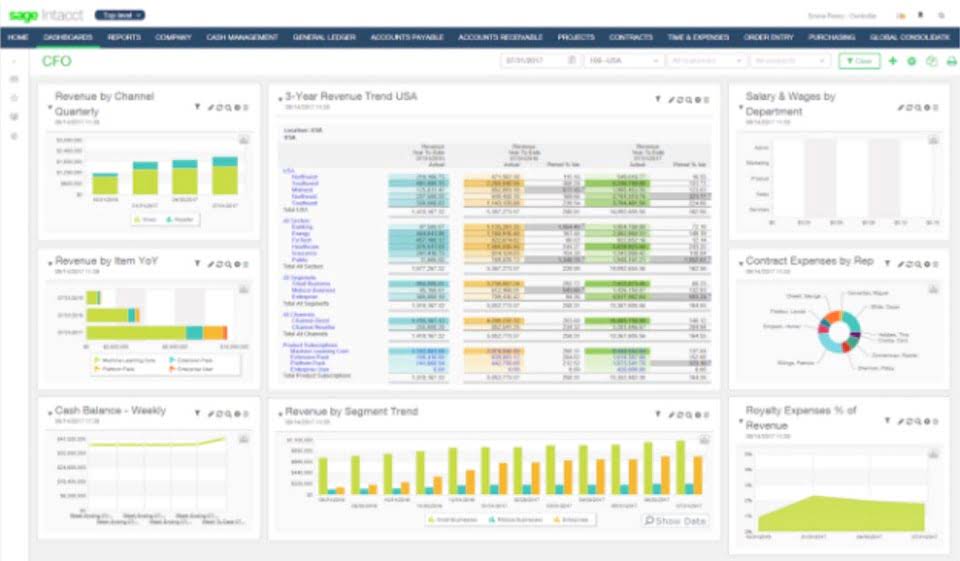
Not-for-profit financial statements play a crucial role in ensuring transparency and accountability for charitable organizations. These specialized accounting practices help in demonstrating the organization’s financial health and operational efficiency to donors, grantmakers, and regulatory bodies. By adhering to stringent accounting standards, not-for-profits can build trust and credibility within the community they serve. The Statement of Functional Expenses is a crucial component of not-for-profit financial statements, providing a detailed breakdown of expenses by both their nature and function. This statement helps stakeholders understand how resources are allocated towards various programs, management, and fundraising activities.
- They’re both required for making effective and well-informed financial decisions.
- Operating activities in a not-for-profit’s Statement of Cash Flows include cash transactions related to the core mission-driven activities of the organization.
- For example, large organizations like universities often have dozens, if not hundreds, of bank accounts for different purposes like scholarships, tuition, projects, etc.
- When we contacted a sales representative for a starting price, we were told there is no set starting price as each solution is uniquely catered to the NetSuite client.
- This guide will provide information about the basics of nonprofit accounting, best practices, and the importance of outsourcing for nonprofits.
- A generous car dealership gives you a vehicle for free, but that doesn’t mean it wasn’t a transaction!
- Here at Better Bookkeepers, we apply our extensive experience in bookkeeping in San Jose to create custom solutions for each client.
Table of Contents
ToggleDifferentiating between for-profit and non-profit accounting

Your nonprofit’s statement of activities goes by many names such as your income statement, budget report, profit/loss, income/expense, and others. No matter what your nonprofit calls this statement, it’s used for the same purpose. Endowment funds are treated slightly differently, as the endowment fund records as revenue both restricted endowment contributions received and investment income that is earned on endowment funds. As with non-endowment restricted funds, unrestricted funds used to supplement the endowment fund expenditures are shown as a transfer.
Dealing with Limited Financial Expertise Within the Organization
A bookkeeper with experience in fund accounting will create detailed fund accounting reports to help your Sales Forecasting accountant file quarterly statements and perform audits. Nonprofit bookkeeping tracks donor restrictions and focuses on fund accounting, while small‑business bookkeeping centers on profit and owner equity. When your records stay current, budgets stay on track and donors stay inspired. Invest in disciplined practices, embrace smart technology, and lean on expert partners when tasks exceed your bandwidth. Each fund tracks money earmarked for a specific purpose—scholarships, building projects, or disaster relief—so you never mix it with unrestricted revenue. Our systems are built around expense management and compliance, so nothing gets misclassified, and every transaction has a trail.
- This partnership can help organizations navigate the complexities of nonprofit accounting with greater confidence and clarity.
- Form 990 is a tax form that tax-exempt organizations—which include most nonprofits—must submit to the IRS every year.
- Non-profit organizations (NPOs) have distinctive financial reporting requirements that differ from for-profit entities.
- Finding someone who harmonizes with your mission and values also plays a critical role.
- When you’re looking for bookkeeping and QuickBooks training nearby, Better Bookkeepers is the best choice.
Criteria for Selecting Bookkeeping Software

Track your nonprofit’s finances with our customizable chart of accounts template. This is the part of the tax code that concerns charities, nonprofits, and religious organizations that are exempt from paying federal taxes to the IRS. This is essentially the nonprofit accounting version of the balance sheet equation. Nonprofit-friendly accounting software shouldn’t just allow you to create professional-looking budgets. They should also let you track how your income and spending for the year compare to your budget goals. Of course, the central role of nonprofit bookkeeping is to keep the books of your organization current and accurate.

Bookkeepers must record these funds in a chart of accounts to better keep track. If your nonprofit can afford to hire a bookkeeper, you should find someone with fund experience. Bookkeepers with this background will help create internal reports that don’t need much updating by your accountant and can save your nonprofit money and time.
Accounting Software for a Nonprofit
This method records revenues and expenses when they are earned or incurred, even if the cash is not received or paid until a later date. Review and compile your financial information on a regular basis to generate accurate financial statements. These documents provide basic financial information and progress accounting services for nonprofit organizations checks about the organization and demonstrate fiscal responsibility. They are valuable for government or Grantor entities, board members, potential investors, and operatives monitoring organizational performance. In this guide, we talk about the essential components of bookkeeping for nonprofits and provide handy tips for keeping your paperwork impeccable and your compliance squeaky clean.
B. Importance of understanding nonprofit accounting
Furthermore, effective accounting practices enable efficient management of resources. The right approach depends on your organization’s size, complexity, and budget. Many nonprofits find that outsourcing provides the best balance of CARES Act insights and affordability, especially when working with a firm that understands the nonprofit sector’s unique challenges. Nonprofits must properly account for different revenue sources, including donations, grants, program service fees, and investment income.

Audit and Assurance Services
- As the organization grows or experiences fluctuations in demand, the outsourced provider can adapt and provide the necessary support.
- These requirements often stem from regulations set by the Financial Accounting Standards Board (FASB) and the Internal Revenue Service (IRS).
- And on the review site TrustRadius, Sage Intacct gets 8.6 stars out of 101 with customers indicating they’re happy with Sage’s fast customer service response time.
- With no payroll tools, Quicken allows solo-run nonprofits that rely on volunteers to perform basic business accounting, such as allocating funds based on donor intent to different categories or budgets.
- That’s why QuickBooks integrates with apps that you can rely on to get things done.
A nonprofit bookkeeper is in charge of categorizing and recording transactions, reconciling bank statements, and producing financial statements. Others may be involved in the day-to-day activities of budgeting and paying the nonprofit’s bills. Accrual accounting recognizes revenue and expenses when they are incurred, while cash basis accounting records them when cash is exchanged. Fund accounting is also significant as it helps track resources allocated for specific purposes.
Mastering Financial Statements: Essential Accounting Practices for Not-for-Profit Organizations
